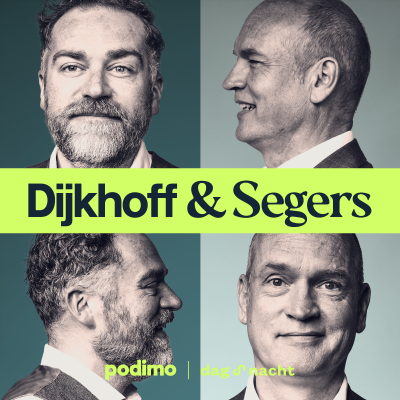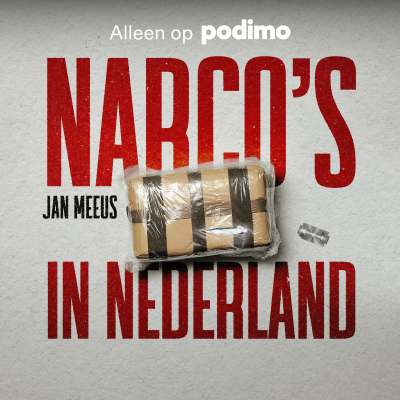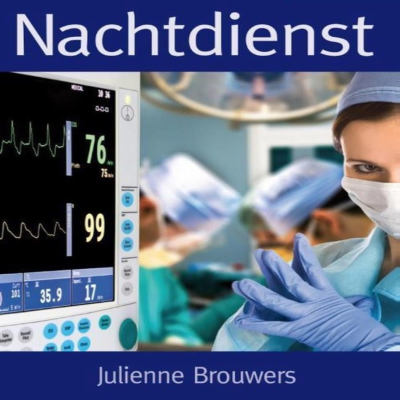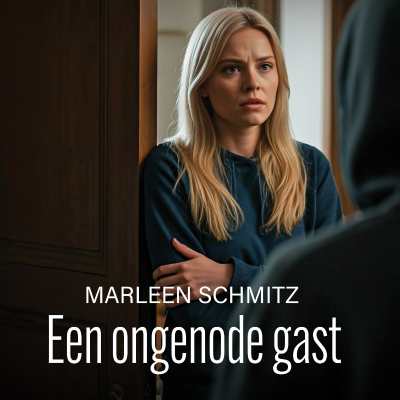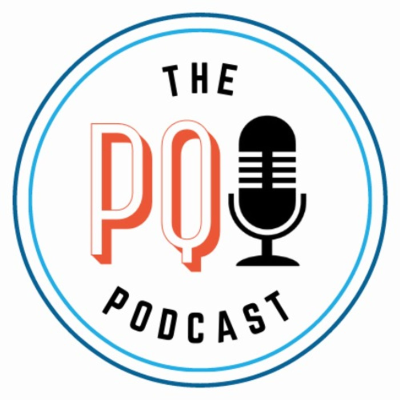
The PQI Podcast
Engels
Technologie en Wetenschap
Probeer 14 dagen gratis
€ 9,99 / maand na proefperiode.Elk moment opzegbaar.
- 20 uur luisterboeken / maand
- Podcasts die je alleen op Podimo hoort
- Gratis podcasts
Over The PQI Podcast
The PQI Podcast, presented by NCODA, Inc., hosts clinical and administrative experts in oncology providing insight on important industry topics and how they value the Positive Quality Intervention (PQI) resource for their practice. In addition, the podcast highlights patient stories of hope, determination and how patient-centered care has impacted their cancer journey. Hosted by NCODA's Manager of Patient-Centered Communications, Ginger Blackmon, PharmD.
Alle afleveringen
167 afleveringenS9 Bonus Episode- From Patient to MIP Advocate
Bill Wimbiscus is a longtime journalist and NCODA collaborator—and in this bonus episode, he shares what it felt like to go from reporter to patient after a multiple myeloma diagnosis. He talks candidly about the realities that show up outside the clinic: oral oncolytic logistics, specialty deliveries, dose changes, and the financial uncertainty that can derail care. Bill’s connection to NCODA started as a patient, when an NCODA member pharmacist helped secure urgent financial assistance in minutes after his support fell through mid-year. That experience later shaped his work on the updated NCODA-ASCO Updated Standards for Medically Integrated Dispensing [https://www.asco.org/practice-patients/cancer-care-standards/patient-centered-standards-medically-integrated-dispensing]. In this episode: * What patients experience between visits (delivery, cost, adherence stress) * Why cycle-to-cycle changes create real medication waste and confusion * What medically integrated pharmacy support looks like from the patient side * How patient voice can shape standards that improve access and care
S9 E15: Theranostics: The New Era of Targeted Imaging & Therapy
Nuclear pharmacy is rapidly moving from the background to the forefront of oncology care. In this season finale episode, Nic Mastiscusa, PharmD, Chief Nuclear Pharmacist at the University of Iowa Hospitals and Clinics, breaks down how theranostics and radiopharmaceutical therapies are changing the way certain cancers are diagnosed and treated. Nick explains how targeted radioactive drugs can both locate tumors and deliver therapy, what this means for diseases like neuroendocrine tumors and prostate cancer, and why concepts such as alpha vs. beta emitters and dosimetry matter clinically. This episode is ACPE-accredited for pharmacists and pharmacy technicians and is worth 0.5 credit. Learning Objectives * Describe the role of nuclear pharmacy and theranostics in oncology care * Differentiate between diagnostic and therapeutic radiopharmaceuticals * Explain clinical differences between alpha- and beta-emitting radiopharmaceuticals * Identify the role of dosimetry in personalized radiopharmaceutical treatment * Recognize key patient counseling and safety considerations related to radiopharmaceutical therapies CE Information This activity is ACPE accredited for pharmacists and pharmacy technicians. CE credit is available upon successful completion of the post-activity requirements. Access the CE activity here: https://www.lecturepanda.com/r/PQIPodcastTheranostics [https://www.lecturepanda.com/r/PQIPodcastTheranostics] CE Disclosures Nic Mastascusa, PharmD, R.Ph., BCNP discloses affiliations with NMTCB and NANP.
S9 E14: Immunotherapy and the MyMelanoma Project
Melanoma used to have almost no effective treatment options. Now? Immunotherapy is changing lives — and Oxford’s Dr. Mark Middleton joins us to unpack the science, the turning points, and the innovations reshaping melanoma care. In this episode, he reflects on decades of research — from the early trials that taught researchers what not to do, to the breakthroughs in checkpoint inhibition and precision approaches that dramatically improved outcomes. We also dive into MyMelanoma, a nationwide effort gathering real-world patient data to answer questions traditional trials often leave behind. Takeaways: * What researchers learned from early immunotherapy trial failures — and how those lessons shaped today’s strategies * The evolving science behind checkpoint inhibitors and why certain patients respond more durably than others * How MyMelanoma is uncovering insights on risk, survivorship, lifestyle factors, and real-world outcomes at scale * The future of melanoma treatment, including biomarkers, combinatorial approaches, and better trial designs
S9 E13: A Season of Gratitute
In this special Giving Tuesday episode, Ginger talks with Chuck Akanegbu, PharmD, a PGY1 resident and longtime NCODA PSO leader, whose involvement in the student community led to something bigger than he ever expected: donating stem cells through the National Marrow Donor Program (NMDP). Chuck reflects on how the PSO shaped his interest in oncology, what leadership taught him, and how he went from supporting donor drives as a student to becoming a donor himself. He breaks down the donation process in a straightforward way and shares how the experience is shaping his approach as a future oncology pharmacist. It’s a timely reminder of what Giving Tuesday represents at NCODA: showing up for others, supporting patients and peers, and taking action when you have the chance to make an impact. Learn more about NMDP here [https://www.ncoda.org/nmdp/].
S9 E12: “We Won the Battle, Now Let’s Paddle”
What happens when a group of breast cancer survivors climb into a 40-foot boat and start paddling together? You get the Mammoglams — a Jacksonville dragon boat team turning survivorship into strength, resilience, and community! In this episode, we’re joined by Pam Reckner, breast cancer survivor, Team USA paddler, and Team Captain of the Mammoglams, along with Jeri Millard, breast cancer survivor, longtime patient advocate, and Founder/CEO of In the Pink, a nonprofit boutique supporting cancer patients in Jacksonville. Together, they share how dragon boating has become a powerful part of recovery — improving mobility, supporting lymphedema management, and offering survivors a place to rebuild confidence and connection. They also take us inside the global breast cancer paddling community, talk about what it’s like to compete internationally, and describe how the Mammoglams support survivors at every fitness level with a truly “no paddler left behind” approach. In this episode: * How dragon boating supports strength, mobility, and physical healing after breast cancer * Why survivors describe the Mammoglams as a genuine “floating support group” * Pam’s path from treatment to Team USA paddler and team captain * Jeri’s advocacy journey and the origins of dragon boating in Jacksonville * Insight into the international breast cancer paddling movement and upcoming world competitions Learn More: Mammoglams Website: www.mammoglams.com [http://www.mammoglams.com/] Jacksonville Dragon Boat Club: www.jacksonvilledragonboatclub.com [http://www.jacksonvilledragonboatclub.com/] In the Pink nonprofit: https://inthepinkboutique.com [https://inthepinkboutique.com/]
Kies je abonnement
Premium
20 uur aan luisterboeken
Podcasts die je alleen op Podimo hoort
Gratis podcasts
Elk moment opzegbaar
Probeer 14 dagen gratis
Daarna € 9,99 / maand
Premium Plus
Onbeperkt luisterboeken
Podcasts die je alleen op Podimo hoort
Gratis podcasts
Elk moment opzegbaar
Probeer 30 dagen gratis
Daarna € 11,99 / maand
Probeer 14 dagen gratis. € 9,99 / maand na proefperiode. Elk moment opzegbaar.
